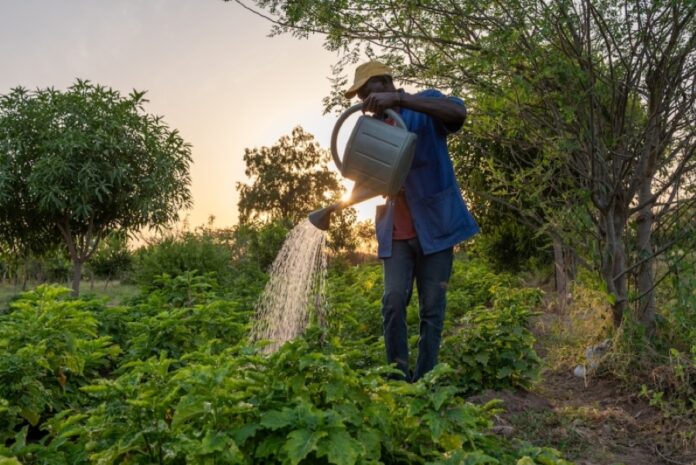A recent study by Qasha, et al. (2024) titled “Assessing the Impact of Ecological Forest Restoration on Soil Carbon Stocks in Sub-Saharan Africa: A Systematic Review” published in Carbon Management by Taylor & Francis shows that ecological restoration initiatives bolster ecosystem resilience, helping forests withstand environmental changes and disruptions.
“
Ecological forest restoration in Sub-Saharan Africa significantly increases soil carbon stocks, enhancing ecosystem resilience and promoting sustainable land use. – Qasha, et al. 2024
This article explores a systematic review evaluating the influence of ecological forest restoration on soil carbon (C) stocks across Sub-Saharan Africa (SSA). Deforestation, driven by agricultural expansion and other human activities, has played a significant role in exacerbating the global climate crisis by contributing to the release of greenhouse gases, including carbon dioxide. These emissions are key drivers of climate change. In response, ecological restoration strategies—such as agroforestry, forest and landscape restoration, and selective logging—are increasingly seen as effective means to enhance soil carbon sequestration. The review synthesizes results from 22 studies that examine these various restoration approaches. It demonstrates that ecological restoration practices not only increase soil C stocks but also contribute to improved ecosystem resilience. This increase in soil carbon helps stabilize ecosystems, making them more resistant to environmental stresses such as droughts, extreme weather events, and soil degradation. Additionally, these practices promote sustainable land use, helping communities in SSA to mitigate the impacts of climate change while supporting agricultural productivity and biodiversity conservation.
How the Study was Conducted
The study adhered to the Preferred Reporting Items for Systematic Reviews (PRISMA) guidelines to ensure a comprehensive and transparent synthesis of evidence. A comprehensive search was conducted across three electronic databases: Scopus, Web of Science, and Google Scholar. The search was limited to publications from 1990 to 2024. The search terms included combinations like “active forest restoration,” “ecological forest restoration,” “afforestation,” and “Soil C sequestration,” among others, using Boolean operators. Tools like Mendeley and Excel were used for exporting articles and managing references, ensuring the elimination of duplicates and the development of a streamlined reference library.
What the Authors Found
The authors found that ecological restoration efforts, such as agroforestry and selective logging, significantly enhance soil carbon stocks, improving ecosystem resilience and promoting sustainable land use practices. The authors further posit that restoration initiatives bolster ecosystem resilience, helping forests withstand environmental changes and disruptions.
Why is this important?
Climate Change Mitigation: Enhancing soil carbon stocks through restoration efforts helps sequester carbon dioxide, a major greenhouse gas, thereby contributing to climate change mitigation.
Biodiversity Conservation: Restoring forests improves habitat quality and supports biodiversity, which is crucial for maintaining ecosystem services and resilience.
Sustainable Land Use: By promoting sustainable practices like agroforestry, these efforts help prevent land degradation and ensure long-term productivity of the land.
Policy and Practice: The research highlights gaps and biases in current studies, guiding future research and informing policymakers and practitioners about effective restoration strategies.
Global Goals: These efforts align with and support the achievement of Sustainable Development Goals (SDGs), particularly SDG 13 (Climate Action) and SDG 15 (Life on Land), which are essential for global sustainability.
Understanding these impacts helps prioritize ecological restoration as a key strategy in environmental conservation and sustainable development.
What the Authors Recommend
- The authors emphasize the need for more comprehensive studies covering a wider geographic area and addressing language biases to ensure a complete understanding of restoration impacts.
- The study emphasizes that incorporating indigenous and local knowledge into restoration practices is crucial for the success and sustainability of these efforts.
- Stronger policy frameworks and support from governments and international organizations are necessary to promote and implement effective restoration strategies.
- Continuous monitoring and evaluation of restoration projects are essential to assess their long-term impacts and make necessary adjustments.
- Engaging local communities in restoration activities not only enhances the effectiveness of these projects but also ensures that they are socially and economically beneficial.
Conclusion
In conclusion, ecological forest restoration in Sub-Saharan Africa plays a critical role in enhancing soil carbon sequestration, improving ecosystem resilience, and supporting sustainable land use. By mitigating climate change, promoting biodiversity conservation, and strengthening local communities, these restoration efforts present a powerful solution for environmental and socioeconomic challenges. However, continued research, stronger policy frameworks, and active community involvement are essential to ensure the long-term success and scalability of these initiatives, aligning with global sustainability goals.
















 The African Research (AR) Index is a comprehensive scholarly directory and database focused explicitly on journal publishers that publish and disseminate African research.
The African Research (AR) Index is a comprehensive scholarly directory and database focused explicitly on journal publishers that publish and disseminate African research.

